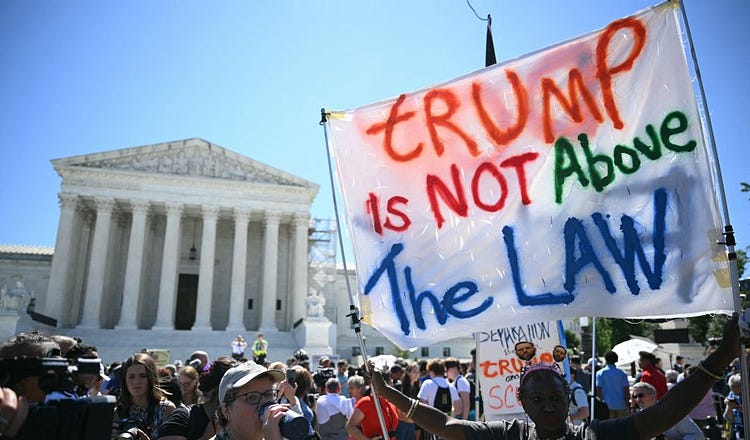The Takeaways from Three Supreme Court Rulings

People hold anti-Trump signs in front of the Supreme Court on July 1, 2024, in Washington, D.C. (Photo by Drew Angerer / AFP via Getty Images)
Jed Rubenfeld explains the justices’ thinking in cases on presidential immunity, censorship, and regulation.
121
Yesterday the Supreme Court published its decision in the Trump immunity case. Depending on who you believe, it was either a righteous victory for the former president—or the beginning of the end of democracy as we know it.
This politically high-stakes ruling was just one of a series of important judgments decided by the court at the end of a busy term.…
Continue Reading The Free Press
To support our journalism, and unlock all of our investigative stories and provocative commentary about the world as it actually is, subscribe below.
$8.33/month
Billed as $100 yearly
$10/month
Billed as $10 monthly
Already have an account?
Sign In


